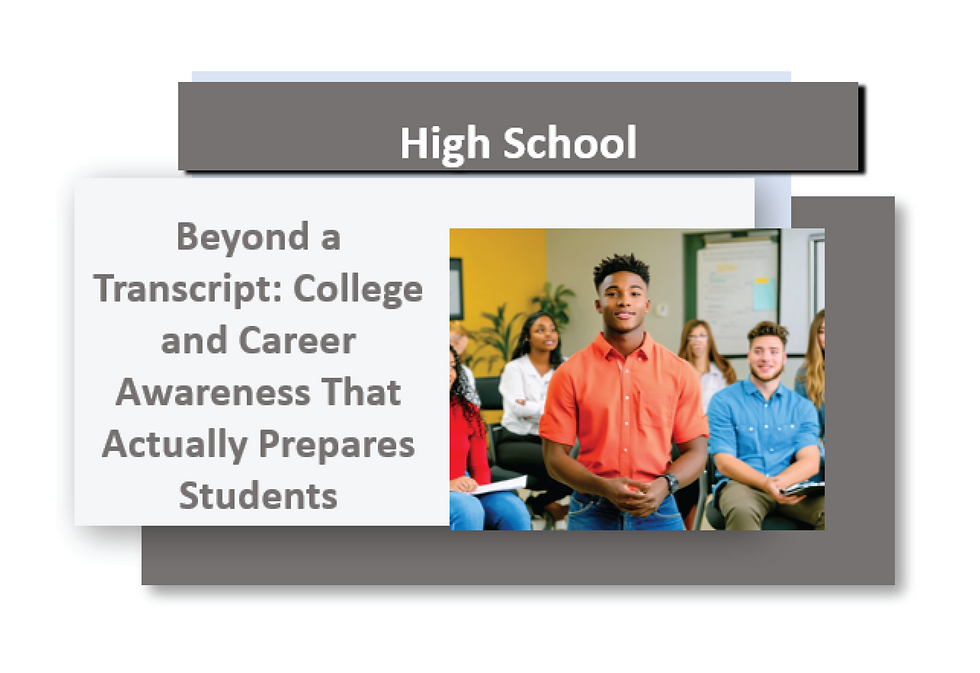Ethics First: Integrity and Resilience as Daily Readiness
- Sep 17, 2025
- 3 min read
Updated: Sep 22, 2025
Ethics and Resilience in High School. Why integrity and resilience are the core of college and career readiness, and how schools can grow them through everyday practice.
Integrity is not a poster on the wall. It is the habit of telling the truth about progress, keeping promises, repairing harm, and holding steady when plans change. Resilience is not a slogan. It is the capacity to adapt without losing purpose. Together, these two qualities form the base of readiness for teams, college, and early work.
Why ethics must come first
Trust accelerates every project. Without trust, groups add meetings, rework, and checks. With trust, people move.
Integrity anchors judgment. When values are clear, tradeoffs are easier and pressure has less power.
Resilience protects learning. Projects rarely go in a straight line. Students who can adjust and try again grow faster.
What integrity looks like for teens
Honest status updates that include progress, obstacles, and a next step
Clear ownership of tasks and clean handoffs to peers
Repair language that names impact and a concrete fix
Consistent follow through even when a task is not exciting
A repair culture that students can practice
Students learn repair by doing it, not by hearing about it.
Four-step repair script
State what happened without excuses.
Name who was affected and how.
Offer one repair that fits the impact.
Add one prevention step for next time.
Keep the script the same in class, online spaces, clubs, and part-time roles. Consistency makes normal repairs and removes shame.
Everyday justice, not just rules
Ethical thinking is practical. Teach students to ask four questions in moments that matter.
What happened
Who is affected and in what ways
What is the fair next step
How can we prevent this from repeating
Use these questions for group work, hallway conflicts, shared spaces, and digital issues. The habit will travel.
Service with real users
Small service projects are the practice field for integrity. Choose needs that students can see and measure. A messy shared area. Confusing signage. New students who need a welcome plan. Require a definition of done, collect before and after evidence, and hand off a maintenance plan. Responsibility becomes visible, and pride grows for the right reason.
Adaptive routines that build resilience
Plan, act, review cycles that repeat each week
Plan B lists that students prepare before work begins
Calm language when work hits a wall
Early help requests with a specific ask
Treat iteration as progress. Students who see version history as normal are more willing to try again after a miss.
Signals schools can collect
Status notes with next steps
Evidence that a promise to the group was kept
Short reflections that name a value, a choice, and a change in behavior
Before and after photos for service work or process fixes
Version history that shows adjustments after feedback
Common pitfalls and simple fixes
If repair feels like punishment, return to impact and prevention, not blame
If the same students carry the load, post roles, and rotate them on a schedule
If projects look polished but fragile, add a required Plan B before launch
Takeaway Ethics and resilience are practical. They lower friction, protect trust, and keep teams moving when conditions change. When schools build these habits on purpose, students leave with proof that others can rely on them.




Comments